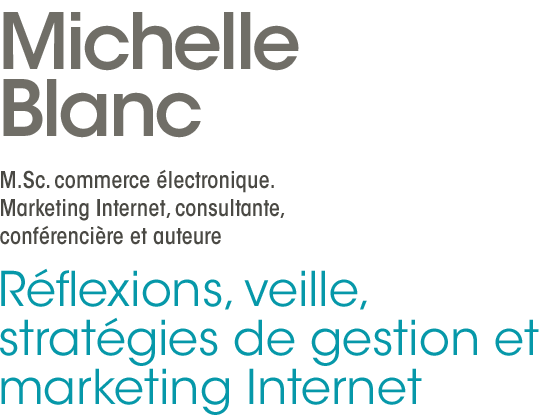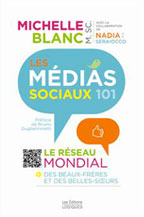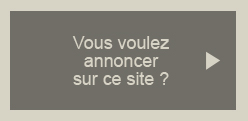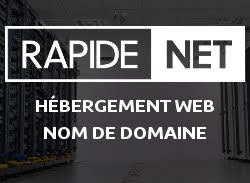La censure des big tech, changement de paradigme et implications. Une discussion avec Me Vincent Gautrais
Il y a maintenant deux semaines, Twitter a décidé de bannir unilatéralement Trump de sa plate-forme. Facebook et plusieurs autres outils sociaux ont suivi. Les jours suivants, 70 000 comptes de sympathisants de Trumps ont aussi été bannis de Twitter. Ils se sont alors réfugiés sur la plate-forme Parler. Cette plate-forme était hébergée chez AWS, Amazon Web Services. Les applications étaient disponibles sur Androïd de Google et le AppStore d’Apple. Elle a rapidement aussi été déplatformée de toutes les plateformes.
Quelques jours après son coup d’éclat, Jack Dorsey, le CEO de Twitter reconnaissait que sa décision créait un dangereux précédent. Selon la CBC :
Dorsey acknowledged that shows of strength like the Trump ban could set dangerous precedents, even calling them a sign of “failure.” Although not in so many words, Dorsey suggested that Twitter needs to find ways to avoid having to make such decisions in the first place. Exactly how that would work isn’t clear, although it could range from earlier and more effective moderation to a fundamental restructuring of social networks.
Durant le même moment, le copain Mitch Joël sur son Facebook, y allait de sa propre perspective.
What is “free speech”?
I saw a tweet that stated:
“Don’t be fooled. Big Tech isn’t shutting down accounts due to ‘risk.’ They’re trying to control what you READ. What you THINK. What you BELIEVE. They’re after one thing: control. Because control means power. Don’t let them win.”
I’m not a politician.
I’m not a scholar of the law.
I’m not even American.
I’m someone that pays a lot of attention to technology, consumer behavior, and media.
I’m someone that used to publish print magazines, and was a music/culture journalist in the pre-historic ages (before the web).
A time and place where ALL content was controlled through a tight and small media filter (because creating and distributing content was hard and expensive).
The web brought forward one simple (but massive) change:
The ability for anyone to publish their thoughts in text, images, audio and video… instantly and for free for the world to see.
Content was no longer hard and expensive to create and distribute.
A scarcity to abundance model.
That doesn’t mean that all content gets the same distribution.
That doesn’t mean that all content gets the same attention.
It, simply, means that whether it’s a tweet, blog post, article, podcast, video on YouTube or even a newsletter – it has the capacity to reach a massive audience without any friction.
I’m going to re-write that tweet from above from my own perspective:
Don’t be fooled.
Big Tech doesn’t really care about your tweets.
They’re not trying to control what you READ.
The more people that you follow, and the more people that create content is how their business model and platform expands.
They want you to see much more content, but – unfortunately, most people will only follow those who create content that is aligned with their values and aspirations.
They don’t really care much about what you THINK, but they do care a lot about showing you more content that you tend to follow, like, share and comment on.
They are after control… but not control of what you read, think, or believe.
They’re after control of a marketplace.
To build, as
Scott Galloway
calls it: an “unregulated monopoly” (with a large and deep moat around it).
The power that they seek is not over what content flows through their platforms, but rather that ALL content flows through their platforms, and that you spend as much time as possible within their walls.
Big Tech doesn’t win by suspending, deleting or censoring any content.
Big Tech wins by having as many people as possible on the platform, creating, sharing, connecting and spending their time on it.
Your attention and content becomes the data that makes them powerful.
Follow the money.
In fact, blocking and moderation is the way that they lose.
It costs money, time, human capital, and energy to moderate and deal with content that offends, break laws, etc…
The more that people don’t connect, or when those connections get broken (users leave, people unfollow people), the worse the platform performs.
If people question the quality of the platform, they may leave the platform for other spaces.
And, ultimately, the most important thing to understand is this: they are the platform and not the content creators.
They don’t care about your content, they just want your data.
The content creators are us.
You and I.
No content creators… no platform.
No growth for “Big Tech.”
Should they regulate what content we create and put on their platform?
Clearly, they have to because we can’t do it for ourselves.
Should the government be a part of this regulation?
Absolutely.
I do not want a public or private business deciding what is/isn’t free speech (that’s the role of government and the law).
We know the rules.
We know what is right.
We know what is wrong.
Yet, here we are.
We’re slamming the platform that allows the content to flow, and not the content creators for publishing these thoughts in the first place.
Don’t be mistaken.
Don’t be confused.
The problem isn’t the platform.
The platform and their use of your personal data is their big issue.
The problem is you and I.
It’s our inability to accept a difference of belief.
It’s our inability to not be able to distinguish between what is right and wrong.
It’s our inability to see and hear those who feel like they have not been seen or heard.
It’s our inability to accept responsibility for what these platforms have become.
It’s our inability to know the difference between fake and true.
It’s our inability to see how locked into the cult or personality we’ve become.
That saddens me to no end.
I always thought that the Internet would enable a thousand flowers to blossom over the handful of old trees that truly controlled what media our society was offered and afforded.
That gift came true… and we seem to be blowing it.
Not all of us.
Just some of us.
Just enough of us.
But those “some of us” are awfully loud.
Don’t let them drown out what is truly there.
The platforms enable many voices, in many unique niches to have a voice, build a business and tell better/more interesting stories.
I’ve met some of the most fascinating people in the world because of these platform.
Some of my best friends and best business successes have happened because of these platforms.
Justice isn’t blaming Big Tech.
Justice is using these platforms to bring people together.
Justice is using these platforms to bring more voices out into the open.
Justice is using these platforms to make connections with people that you would never have had a chance to connect with.
Justice is using these platforms to learn, grow, share and improve.
Control may be power.
If it is, control who you follow.
Control what you read.
Control what you post.
Control what you comment on.
Control what you like.
Control what you share.
Control the messages from those seeking to do harm.
Control your knowledge of how media works.
Control your filters.
Control your experience.
Control your future
Je lui fis cette réponse :
Free speech always had it’s limits. Those limits were regulated by the laws. The web is transnational and the laws difficultly applies to a no-border environment. We solved the problem for the sea, Antartica and celestial bodies by developing transnational treaties to managed them. Big tech have become transnational states and have their own political agendas. One of them is to choose the best “friendly environment” to keep making money without having to regulate too much. Trump is not considered as a positive actor in their scheme of things. Furthermore, even tho they are transnational, they are set in the US. This is were they could more effectively be regulated or not. they also have political opinions. So I do not agree with you that they don’t care about the content. In general they don’t. But if some contents or users are perceived has a potential menace to them as a money making machines, they will surely become avid actors in the taking down of those threats and they did. My humble opinion
Je me posais alors la question, comment la décision unilatérale des entreprises de médias sociaux de censurer des dizaines de milliers d’usagers, risque d’avoir un impact sur leurs responsabilités civiles et criminelles?
Voici donc le passionnant échange que j’ai eu avec Me Vincent Gautrais. L’utopie juridique dont je discutais avec lui est ici : Une utopie qui permettrait un cadre juridique international du cyberespace
Article publié le jeudi, 21 janvier 2021 sous les rubriques cybercriminalité, cyberintimidation, cybersécurité, Démocratie en ligne, Droit et Internet, Edito sans question, Facebook, Médias sociaux, politique et internet, Stratégie d'affaires, Technologies Internet, Terrorisme en ligne et Twitter ou le microblogging.










